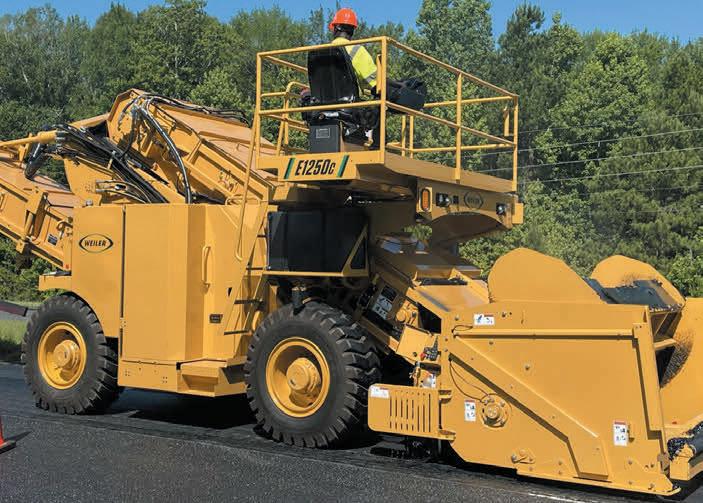
1 minute read
New Excavator Fuel Options REDUCE COSTS AND CARBON FOOTPRINTS

One of the hottest online topics lately regarding the construction industry is whether electric excavators are worth the time, money and commitment to change. Battery charging times may slow down a day's work, some argue. Ohers proclaim that a small electric excavator would not run for eight continuous hours on a jobsite anyway, as a construction project typically requires multiple pieces of equipment for different parts of the work. For example, as operators run dozers or wheel loaders, their small electric excavator battery packs could charge. Despite wide-ranging opinions, more manufacturers are focused on achieving two primary goals as they release new electric excavators: sustainability and fuel efficiency. And whether they're loved or hated by the industry, excavator engineering and product development, which currently prioritize electric and alternative fuels, is progressing rapidly on the road toward drastically lowered emissions.
Full Steam Ahead
Although JCB produces roughly 400 diesel engines every day for its agricultural and construction machinery, the company is currently considering alternative ways to power its machines. After all, governments around the world are striving to end the usage of diesel and gas in passenger cars, along with light goods vehicles. However, JCB has encountered one significant issue: batteries aren’t usually a viable power option for the agricultural and construction industries, as heavy machinery requires massive batteries. Not to mention, the batteries wouldn’t be charged in an easy manner, as the machines are often used in remote areas. With zero-emission technology as its ultimate goal, JCB doesn’t provide hybriddiesel electric technology as a solution either. Nonetheless, in July
Bobcat Company recently released a lineup of all-electric excavators.



2020, JCB engineers began to design an engine for a backhoe that runs completely on hydrogen. Six months later, the first working prototype was tested, as the engineers successfully developed a high-performance, purpose-engineered, zero-carbon dioxide hydrogen fuel engine from the ground up.











